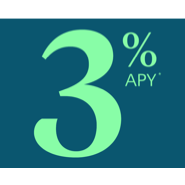[Update 12/15/18: Robinhood is rebranding the account due to the issues discussed in this post.]
Robinhood announced yesterday a checking and savings account with 3% APY interest rate and no fees. There was a lot of discussion which I found interesting about the risks involved in such the Robinhood cash accounts, so here are a few follow-up thoughts. (Here and here are the relevant Robinhood page, for reference.)
- Robinhood says that they’ll only be investing in things like US treasuries and similar. These are the least risky investments available, making the potential for default very low.
- Like other brokerages, Robinhood does not have government-backed FDIC insurance. Instead they are a member of SIPC which basically binds together most/all brokerages so that if one fails, they’ll have to collectively reimburse the customers of the failed brokerage. In the event of a major economic downturn, there may be some level of default where government-backed FDIC accounts will uphold coverage while SIPC – a private entity – will collectively go bankrupt.
- The risk of Robinhood, alone, going bankrupt is well-mitigated by their SIPC insurance.
- SIPC protects up to $500,000 of cash and securities, with a $250,000 limit for cash only. So, for our purposes, you’ll want to limit yourself to $250,000 in the checking/savings accounts. (Not sure if you can put $250,000 in checking and another $250,00 in savings.)
- Where things get interesting is that Robinhood is introducing a new kind of cash account: most brokerages have a cash account where you leave your liquid funds waiting to be invested, but those funds are just sitting there, not invested. In fact, the brokerages may even have an automated sweep system where they – behind the scenes – deposit all your cash on hand into an FDIC-backed account while it waits.
- On the other hand, this Robinhood account is openly investing your funds. Now, they say they’ll only be investing in safe investments. But, let’s do a mental exercise and imagine an SIPC brokerage member who creates a similar kind of checking account promising a steady 10% return by doing overtly risky investments, selling options or whatnot. Would SIPC have your back in case of default? That’s hard to imagine. The purpose of SIPC is obviously not to mitigate an individual’s risk in investment – many investors take big losses when they make poor choices. The SIPC is to ensure against the insolvency of the firm, not the investments. When the firm creates a product which pays a higher rate based on investment, that may not be included.
- A reader shared an article on Barron’s (paywall link) which addressed this very issue:
In an email to Barron’s the head of the SIPC cast doubt on the idea that it would insure checking or savings accounts.
“SIPC protects cash that is deposited with a brokerage firm for one limited purpose…the purpose of purchasing securities,” wrote Stephen P. Harbeck, the president and CEO of SIPC. “Cash deposited for other reasons would not be protected.”
Robinhood says that because the checking and savings products are technically part of a brokerage account, they would be protected by SIPC like other brokerage assets…
Other broker-dealers also offer cash management accounts with checking-like features, though the branding and insurance is different. Fidelity, for instance, offers a cash management account that acts like a checking account and allows people to use fee-free ATMs. But it’s not branded as a checking account, and cash funds are swept to a bank where that money is eligible for FDIC protection.
Robinhood says it will explain the difference to customers in its marketing.
“We don’t think that’s something that a lot of customers are going to be scrutinizing the details of, or will really see value in there being the difference between the two,” Bhatt says. “The product we’re offering has the same insurance amount, which is a quarter of a million dollars.”
- Axios also got a reply from the CEO of SIPC stating that they will not insure the Robinhood banking products.
At the end of the day, Robinhood feels that their product is covered by SIPC insurance, yet that doesn’t appear to be entirely true. Again, assuming Robinhood keeps to their stated plan of only investing in things like US treasuries, there may not be a whole lot of risk here, but to say that the SIPC is absolutely covering these accounts seems iffy at best.








If you download the latest version of the Robinhood app today, you will see on the “$” icon on the bottom the page changed from stating “Checking & Savings” to “Cash Management”. I think Robinhood is trying to clarify the mess they created to try to be compliant. They definitely need a PR move to clarify the product that they are trying to introduce to the customers.
At first I was stoked about this product but now I think I will not be adding more money that is already in my Robinhood account for this 3%.
Why bother with 3% at Robinhood when you can get 2.86% 8 month CD at Andrews FCU?
RobinHood: “your cash will totally be covered by their insurance”
SIPC: “your cash will NOT be covered by our insurance”
Anyone who thinks RH is trustworthy after such an exchange should not be allowed to invest in anything more complex than a passbook savings account. Good God. I mean, the company was basically founded on the idea of “selling the order flow of dumb money,” but that’s at least a common industry practice.
There is a Article on this in USA today
https://www.usatoday.com/story/money/2018/12/14/robinhood-checking-and-savings-features-not-insured-says-sipc/2310208002/
And these crooks at Robinhood is still keeping my assets frozen more than a year later, which I transferred in, months AFTER they quietly decided to put the freeze on *with zero notice* whatsoever. I did not find out from them about it, until after their app repeatedly denied my attempts to transfer out, apparently over 6 months AFTER they put the *stealth* freeze on. If that’s a business you want to trust your financial assets with, be my guest!
@bax What is the reason they cited for freezing your account?
https://techcrunch.com/2018/12/14/robinhood-insurance-sipc/
The CEO of the Securities Investor Protection Corporation, a non-profit membership corporation that insures stock brokerages, tells TechCrunch its insurance would not apply to checking and savings accounts the way Robinhood claims. “Robinhood would be buying securities for its account and sharing a portion of the proceeds with their customers, and that’s not what we cover” says SIPC CEO Stephen Harbeck. “I’ve never seen a single document on this. I haven’t been consulted on this.”
https://www.axios.com/robinhoods-new-checking-account-b2b0df32-40c6-4bd1-b336-2408b27f16b0.html
Doesn’t anyone consult competent counsel BEFORE pulling the trigger on “deals”?
Lawyers are there to fix the problems after they occur. Is it fraud to advertise accounts with SIPC insurance that legally can’t be provided? Maybe but that’s not my problem.
– Robinhood Development Head, Formerly Uber Innovation Strategist
interesting and helpful post as usual. Thanks for the info Doc! Now i’m not so sure I wanna open this account when it opens…
It is simply not a savings or checking account but a money market account.
It’s not.
Money market **accounts** are no different than savings accounts.
You probably thought of money market **funds**, and this is not that either, because they return interest they receive from the “money market” (guess how they got their name). Not more, not less.
This is an unsecured, immediate maturity, no-fixed term, corporate bond. That is the textbook definition of a demand note.
Thank you for clarifying that 🙂
It does not matter if RH invests in Treasuries, you as a depositor do not get Treasury grade security.
You are practically an unsecured creditor to RH, without any insurance.
If you want +0.5% yield in exchange to losing deposit insurance, all power to you, but be aware of it.
https://www.cnbc.com/2018/12/14/robinhood-debate-highlights-differences-in-fdic-and-spic-protections.html
“Just got off the phone with the head of the SIPC and he says Robinhood never contacted him and he has serious concerns about this new product. Story coming soon.”
From tech reporter https://twitter.com/julieverhage/status/1073583035986137089